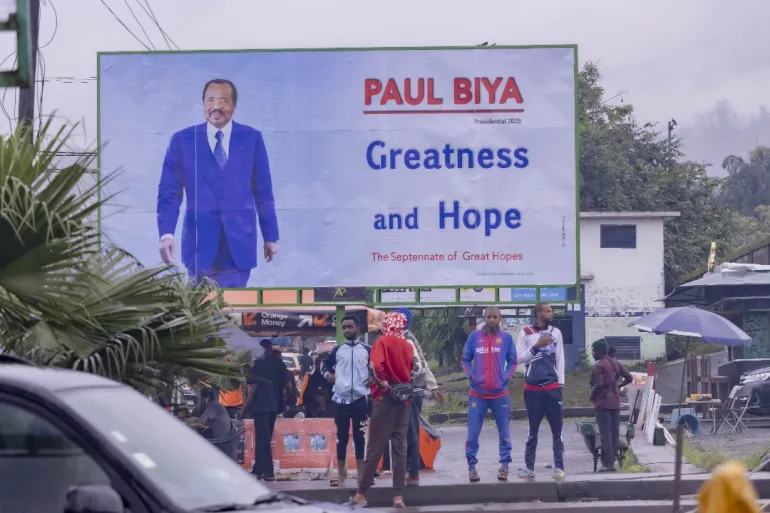Cameroon’s Biya, world’s oldest ruler at 92, sworn in for eighth term | Conflict News
Deadly protests followed the 92-year-old president’s re-election, which opponents have called ‘fraudulent’.
Published On 6 Nov 2025
Cameroon’s longtime leader, Paul Biya, has been sworn in for a new seven-year term following his victory in last month’s presidential election, which his opposition rival has described as “a constitutional coup”.
Addressing Parliament on Thursday, the world’s oldest president promised to stay faithful to the confidence of the Cameroonian people and pledged to work for a “united, stable and prosperous” country.
Recommended Stories
list of 3 itemsend of list
There were deadly protests in several parts of Cameroon days after the October 19 vote, followed by a three-day lockdown this week after former minister and key contender Issa Tchiroma claimed victory and alleged vote tampering.
The government has confirmed that at least five people were killed during the protests, although the opposition and civil society groups claim the figures are much higher.
The incumbent, Africa’s second-longest serving leader, took the oath of office during a session of Parliament in what residents describe as the heavily militarised and partially deserted capital, Yaounde.
Priscilla Ayimboh, a 40-year-old seamstress in Yaounde, does not see a new term for Biya as likely to change anything.
“I’m tired of Biya’s rule and I no longer care whatever he does. It’s a pity. I wonder what will become of Cameroon in the next seven years: there are no roads, water, and jobs,” she said.
Munjah Vitalis Fagha, a senior politics lecturer at Cameroon’s University of Buea, told The Associated Press news agency that Biya’s inauguration was “taking place in a tense yet controlled political atmosphere, marked by deep divisions between the ruling elite and a growingly disillusioned populace”.
Fagha added: “The ceremony occurs amid calls for political renewal, ongoing security challenges in the Anglophone regions, and widespread concerns over governance and succession.”

Cameroon’s top court on October 27 declared Biya the winner of the election, with 53.66 percent of the vote, ahead of his ally-turned-challenger, Tchiroma, who secured 35.19 percent.
Tchiroma insists Biya was awarded a “fraudulent” victory in the election.
“The will of the Cameroonian people was trampled that day, our sovereignty stolen in broad daylight,” Tchiroma wrote on Wednesday night. “This is not democracy, it is electoral theft, a constitutional coup as blatant as it is shameful.”
Biya came to power in 1982 following the resignation of Cameroon’s first president and has ruled since, following a 2008 constitutional amendment that abolished term limits. His health has been a topic of speculation as he spends most of his time in Europe, leaving governance to key party officials and family members.
He has led Cameroon longer than most of its citizens have been alive – more than 70 percent of the country’s almost 30 million population is below the age of 35. If he serves his entire term, Biya will leave office nearly 100 years old.
The results of his nearly half-century in power have been mixed; armed rebellions in the north and the west of the country, along with a stagnant economy, have left many young people disillusioned with the leader.
